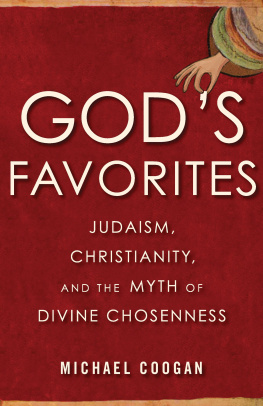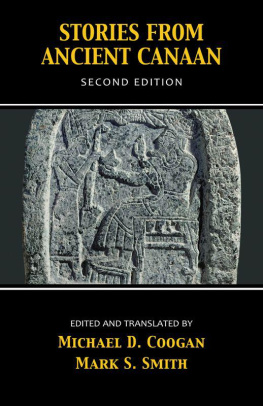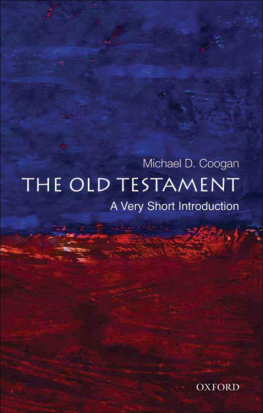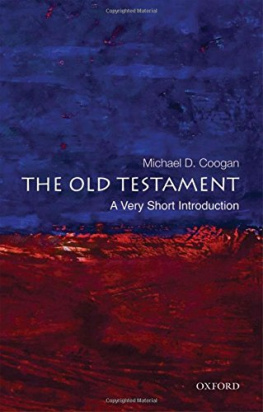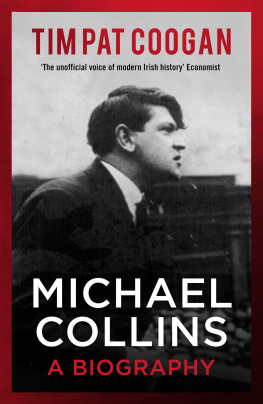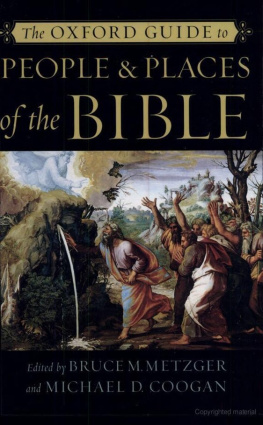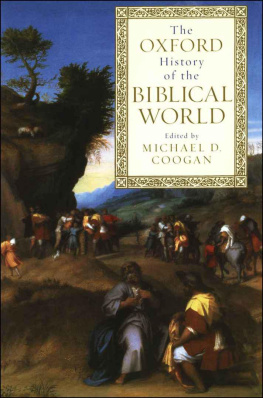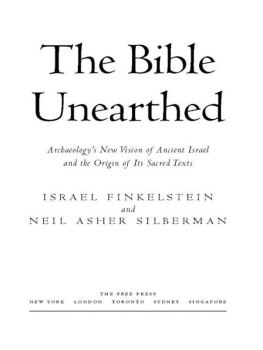Table of Contents
Pagebreaks of the print version
Guide

For Anne Steindorf
and James Coogan
with love
PRESUPPOSITIONS
Yahweh your god chose you from all peoples on earth to be his people, his treasured possession.
(Deuteronomy 7:6)
THROUGHOUT HISTORY , many groups have thought of themselves as divinely chosen, exhibiting what has been called a holy nationalism. For the ancient Egyptians, the divine gift of the annual inundation of the Nile was proof they had been specially chosen; the Egyptians neighbors, whom they called the vile Asiatics, had clearly not been chosen, because their equivalent of the dependable Nile was unpredictable rain. Roman poets such as Virgil and Ovid celebrated the divine plan that had brought Aeneas from the burning ruins of Troy to Italy, from where eventually the emperor Augustus would rule the Mediterranean world. But one ancient peoples claim of divine chosenness has profoundly affected religious and political self-identification for thousands of years, especially in the West: the biblical view that God, the only God, has a favorite people, the Israelites. Beginning in the early chapters of the book of Genesis, chosenness is attached to individuals whom God supposedly preferredAbraham, Isaac, and Jacoband is inherited by their descendants, who have a special status because God chose their ancestors. Although in the pages of the Bible some of those originally chosen eventually became excluded, the concept of chosenness continued to be applied to subgroups within the original chosen people. Subsequently, still others applied the concept to themselves, asserting that those originally chosen had been divinely rejected because they had proven unworthy.
From antiquity to the present, the idea of being divinely chosen has had powerful and often pernicious effects. If only one group has been divinely chosen then others have not been, and that justifies subjugating them and taking their land. Such rationalization has been used repeatedly, in the most virulent forms of anti-Semitism, in the enslavement and even extermination of aboriginal peoples, and in the confiscation of land by force from those not chosenbe they Canaanites, Jews, Muslims, Africans, Native Americans, Palestinians, and too many others.
The concept of chosennessoften called electionis a difficult theological problem. Does Godthe one god of Judaism, Christianity, and Islamhave favorites? Does God really prefer some individuals and groups over others? Are not his love and his mercy universal? Does God in fact choose at all? Philosophers and theologians have wrestled with this issue since biblical times.
In the first part of this book, I first analyze in detail competing and inconsistent claims of being divinely chosen by individuals and groups in ancient Israel and then turn to early Christian claims of being the new chosen people. My primary focus in the second part of the book is Western appropriations of the biblical concept of chosenness, especially by Americans and by Jewish and Christian religious Zionists. Throughout, I suggest how my analysis could move us beyond contemporary tribalisms that are based on fundamentalist readings and misappropriations of ancient texts and that are rationalized by the myth of divine choice of some over others. I use the term myth both in its basic sense of a story with one or more deities as major characters as well as in its metaphorical sense of something that is not true.
I write not as a believer but as a modern biblical scholar, trained in the study of the Jewish and Christian scriptures. Let me explain what this means and why it is important. Since its final formation as a sacred text in the early centuries of the Common Era, the Bible was the preeminent authority for both Jews and Christians. What it said was simply the truth, because they believed it to be divine revelationthe words of God himself. In fact, it was considered not just the words of God but the word of God: both complete and completely accurateinerrant is the term theologians use. Its status was therefore uniquely privileged, and thinkers had only to interpret it.
And interpret it they did: from Hillel and Philo of Alexandria to Rashi and Maimonides, from Paul and Origen to Aquinas and Erasmus and Luther, Jewish and Christian thinkers developed intricate and elegant systems of thought with the Bible at the center. But the privileged status of the Bible began to unravel in the late Renaissance and especially during the Enlightenment. The unraveling began with the rise of modern science, especially in the work of the astronomers Copernicus, Kepler, and Galileo, who argued that, despite what the Bible said, the earth was not the center of the universe. Further developments in biology, chemistry, and other sciences made it clear that the Bibles understanding of nature was often wrong, and its chronology was often inaccurate.
The Bible is not exactly the same book for Jews and for Christians. For Christians, it includes the New Testament, whereas for Jews it obviously does not. And although all of the books in the Jewish Bible are also in Christian Bibles, after the first seven booksfrom Genesis through Judgesthe remaining books are arranged in a significantly different order. Further complicating the definition of the Bible is that some Jewish religious texts, written at the end of the biblical periodthe last few centuries before the Common Era and the first century or so of the Common Eraare not part of the Jewish Bible, although they were considered scripture by all Christians until the Reformation. These works, called the Apocrypha (meaning hidden things, although there was never anything hidden about them), were dropped from Protestant Bibles beginning in the sixteenth century, but Roman Catholic and Orthodox Christian Bibles continue to include them. In this book, I usually use the term Bible in its most inclusive senseany books that Jews and Christians have considered authoritative scripture.
The study of religion, and of religions, is one of many disciplines developed in the West since the Enlightenment. It shares with the study of history, for example, the helpful but also debatable notion that one can be objective: that one should strive to engage in that study without presuppositions, without an ax to grind, without a message to convey. An important corollary is that one does not need to be a believer to study religion. Christian scholars explore Hinduism, Jewish scholars explore Islam, and so forth. One recent example is The Jewish Annotated New Testament, in which Jewish scholars interpret the twenty-seven books of the New Testament.
As a result both of scientific advances and of a more objective approach, beginning in the seventeenth century the Bible began to be viewed differently: as a book, or rather a collection of books, that could be read like any other. In 1670, the philosopher Spinoza stated that his goal was to reexamine scripture with a fresh and free spirit.
Historical critics seek first of all to be critical, in the way that reviewers try to evaluate a book, a film, or a concert without prejudgment. In the study of the Bible, such an approach means understanding the Bible as a collection of works in many genres written by individuals in particular times and in particular places over many centuries. To interpret the Bible as a historical critic, then, is to look at it not as inspired and inerrant, as a revelation from on high, but on its own terms, as the words of David and Jeremiah, of Paul and John, and of other named and often unnamed authors. These authors did not think that they were writing sacred scripture as Jews and Christians would later come to view it.

